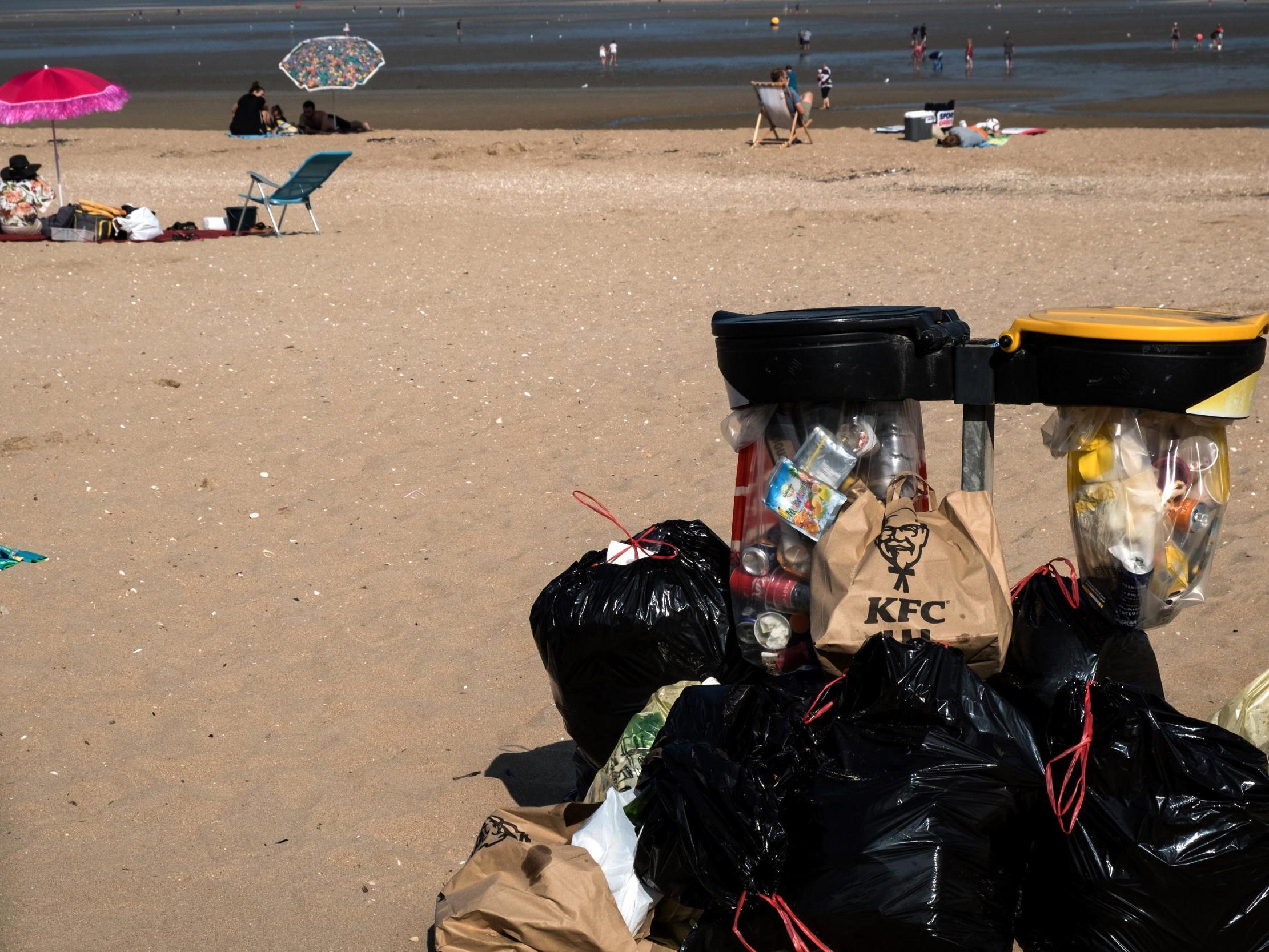Coronavirus: Rubbish set to pile up across Europe after pandemic, leaders warn
Environment commissioner concerned about disruption of markets for recycled plastics caused by low prices of crude oil

Concerns are rising across Europe that the coronavirus-induced slump in oil prices could knock demand for recycled plastics but data is still patchy on how the pandemic has affected the amount of trash piling up, the European Union’s environment chief said.
As lockdowns around the world caused a drop in demand for fossil fuels, oil prices have plummeted this year, making virgin plastics even cheaper than recycled versions of the material.
That could spell trouble for EU plans to improve recycling rates. The EU generates around 26 million tonnes of plastic waste each year. Only 30 per cent of that is recycled.
“We are concerned about potential disruption of the markets for recycled plastics caused by the low prices of crude oil, and also about littering of disposable masks and gloves,” EU environment commissioner Virginijus Sinkevicius told Reuters in a written interview.
“At this stage, we do not yet have sufficient aggregated data to make reliable conclusions on the impact of the coronavirus crisis on plastic waste generation, separate collection, sorting, recycling or littering.”
Plastic recycling plants across Europe have been forced to curb operations during the pandemic, and some say demand has plummeted, as clients have shelved green goals due to the economic downturn.
So far, however, companies still appear on track to meet a voluntary goal set by the EU to use 10 million tonnes of recycled plastics in new products by 2025, Mr Sinkevicius said.
He said the commission has received “relatively few” requests to grant exemptions or extensions to EU environmental rules due to the Covid-19 crisis, but some countries had faced difficulties meeting recycling targets even before the pandemic.
The EU will ban some single-use plastics next year and EU leaders agreed last month to introduce a bloc-wide tax on non-recyclable plastic packaging waste, to help raise funds for Europe’s recovery from the economic chaos wrought by the virus.
Mr Sinkevicius said the EU’s 750 billion euro (£676bn) coronavirus recovery fund could help support the recycling sector.
“If no rapid remedy comes from the EU and the authorities of the member states, reaching of the EU recycling targets is in danger,” Plastic Europe managing director Antonino Furfari told Reuters.
“The low oil prices are set to remain with us for more than only a couple of months, hence further affecting the recycling business. Decoupling the price of fossil plastics from recycled one is therefore a must.”
Reuters
Join our commenting forum
Join thought-provoking conversations, follow other Independent readers and see their replies
Comments